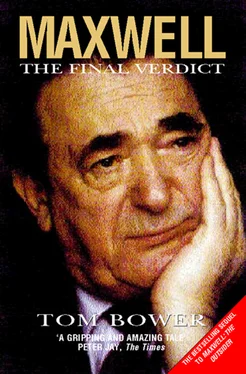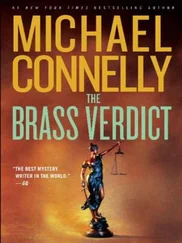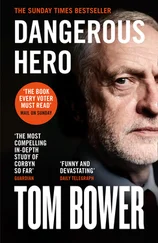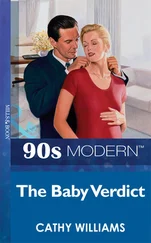Like most editorial lunches, this one ended on a baffled note. Maxwell astonished his employees by blowing his nose into a napkin, but he had failed to cajole anyone into castigating Greenslade. Even so, the editor would agree to depart shortly afterwards.
Maxwell’s real business followed lunch. Waiting in Kevin’s office were Michael Moore and Andrew Capitman of Bankers Trust. Capitman had more reason than ever to be grateful to Maxwell. Recently, he had flown at his client’s expense to visit him on his yacht in Istanbul and had eaten pounds of the best caviar while exchanging a few sentences which could have been spoken quite safely on a telephone. Despite the largesse, Capitman had become convinced that Maxwell’s finances were worse than precarious. Although the Sunday Times was about to list Maxwell among Britain’s richest men worth £1.2 billion, Capitman suspected the truth. But that, he felt, ‘wasn’t our problem’. Although Bankers Trust was in business to lend money, the loans were always syndicated to other banks, thus avoiding any risk.
‘We need a short-term loan,’ said Maxwell, looking at Moore, a brusque, unrefined Cockney and the bank’s technician. ‘The security is the Mirror Group.’ Both bankers expressed their readiness to oblige. The bank would earn by cross-selling the loan for a small profit to other banks. How the money was repaid was not their problem but Maxwell’s – and the other banks’.
After the bankers had left, Maxwell and Kevin agreed to hold back on this transaction. Loans against the Mirror Group would contaminate any future plans to float it on the stock exchange. The two hoped that the profits from the newspaper’s sale would pay off all the debts incurred by using the pension funds. The sale was already codenamed ‘Project Andy Capp’. The lawyers to be involved would be chosen after a beauty parade later that week, and Maxwell would chair the first meeting with bankers on 14 December.
That night, Maxwell decided to show himself around London. At 7.15 he appeared at Tobacco Dock for the Sunday Times Christmas party. His invitation from Andrew Neil, the editor, followed several conversations and a lunch during which they had discussed Neil’s possible employment by Maxwell. As he shuffled through the crowd towards his host that evening, his face betrayed the satisfaction he derived from being universally recognized. He was a man who loved attention and sought the spotlight. Publicity was his oxygen, and if he was too long absent from the limelight he began to feel suffocated.
From Tobacco Dock, Maxwell was driven to Jeffrey Archer’s penthouse apartment on the Thames embankment. Having powdered his face in the lift in front of the novelist’s son, he entered the party expecting to be greeted like royalty. Unlike other guests, including most members of the Cabinet, who stayed for at least an hour, Maxwell exited after just ten minutes. His entry had not been sufficiently applauded and he had not quickly enough become the centre of attention. Worst of all, the sight of people enjoying themselves had been depressing. Over the next days, he failed to appear at successive parties to which he had accepted invitations, not least those of employees, including LBI’s at Les Ambassadeurs club. Instead, he remained in his penthouse each evening drinking heavily, a habit which had developed with startling speed.
He even missed his own party. Traditionally, Maxwell had hosted a Christmas dinner and dance for senior executives at Oxford. One hundred had been invited on Saturday, 15 December, but despite all the enthusiasm for dispensing hospitality he had shown in previous years, he now felt drained, having exhausted himself that afternoon in meetings with Israelis, Mongolians and Italians. The prospect of smiling at those with their noses in his trough was too much. At the last moment, Betty whispered to the guests, ‘Bob’s sick,’ and the seating arrangements were changed. ‘I bet he’s up there in his room,’ quipped Ernest Burrington, the Mirror Group’s new managing director. ‘He’s in a huff with his family.’ Maxwell was in fact consuming his second bottle of champagne. In the hall at the end of a high-spirited evening, most agreed the party had gone better in the absence of the host.
Everyone, Maxwell told himself, was oblivious to his depression, even his children. Over the following days, his sons and daughters celebrated Ghislaine’s birthday, partied at Joe’s Café in Draycott Avenue and split off to various festivities. There was no plan for the family to gather for a Christmas meal. Maxwell was alone and estranged. Even his youngest son’s Christmas card, a tasteless photograph of anonymous racing horses, was signed with an unemotional message: ‘Bob, many thanks for all your help and kindness – Kevin and Pandora.’ The parents had not bothered to list his four grandchildren. Needless to say, there was no hint of love. The awareness of fractured relationships was painful.
At 7 a.m. on Friday, 21 December, he was seated in his kitchen, switching between the morning television breakfast shows and drinking coffee from a large mug while George Wheeler, his hairdresser for the past twenty-one years, was applying L’Oréal No. 7 to dye his hair black. ‘Have you checked all the roots?’ asked Maxwell as he grabbed for a telephone. ‘Don’t worry,’ laughed Wheeler, well aware of his client’s obsession with banishing the slightest hint of age. ‘A phobia about grey hair’ was the hairdresser’s explanation. ‘Even if he saw a grey eyebrow, he would go berserk.’
His time was ebbing and his failure to own a share of Britain’s growing television industry had come to seem a depressing indictment of his career. Poor finances had compelled the premature sale of a 13.8 per cent stake in Central Television, losing him over £20 million in extra profits, and had prevented him bidding for the licence for Britain’s first satellite channel. Murdoch had now cleaned up on that gravy train. All Maxwell owned in the world of broadcast television was an unprofitable stake in French television and 51 per cent of MTV in Europe, the pop station. MTV was an inspired investment, but it was still losing money. Everything was losing money, and there seemed no respite.
As Wheeler waited for the dye to dry, he hoped that he would be spared a repetition of a previous calamity when the Publisher’s hair had turned the wrong colour. Fraught hours had been spent washing the hair back to its natural grey and reapplying the dye. The sight of Maxwell’s vast, naked girth quivering in underpants had amused some eyewitnesses among his personal staff. ‘How can anyone fear that man?’ thought his valet. Once dressed, Maxwell had resumed his hectoring.
‘Have a good Christmas,’ Maxwell joked to the hairdresser. Ever since Wheeler had complained of not being given a seasonal tip, he had been listed to receive a bottle of Scotch and another of gin. Now an ordeal lay before his employer, his hair freshly blackened. At lunchtime there were Christmas drinks for staff on the tenth floor. Maxwell made a brief appearance, oppressed by the evident happiness of others. The prospect of the holidays was awful.
His delight would have been to rest and recover on the Lady Ghislaine , anchored and awaiting his arrival in the sunshine of the US Virgin Islands. Sleek and towering five decks high, the 155-foot, 430-ton yacht had been designed by Jon Bannenberg for the brother of Adnan Kashoggi, the Saudi arms dealer. The Arab had commissioned a gin palace with maximum internal luxury and volume for pottering around off the South of France rather than a craft suitable for crossing the Atlantic. Visitors to the Lady Ghislaine could only be awed by the sumptuous, white-carpeted state room; the comfortable dining room, the bathrooms with gold-plated fittings, the elaborate kitchen and the sheer scale of private luxury. Maxwell regarded the craft as a most precious possession, one which he was unwilling to share. Yet fearing loneliness, he had impulsively agreed that Betty should join him. The opportunity would be used to complete a chore.
Читать дальше












